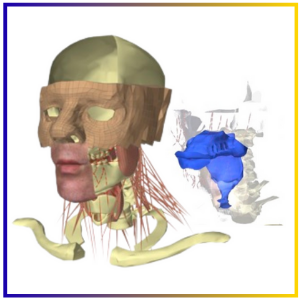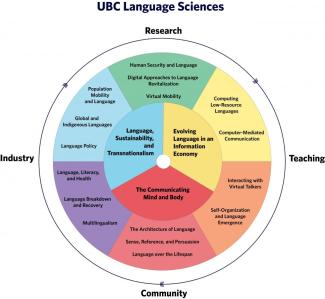Three Primary Pillars
Language, Sustainability, and Transnationalism
- explores the ways in which language shapes and is shaped by interactions between individuals and communities
Communicating Mind and Body
- explores the physical and neural foundations of language
Evolving Language in an Information Economy
- explores language’s role in information and technology
Five Grand Challenges
Language Sciences focuses on five key research challenge areas for interdisciplinary research:
Overview of Our Research
Need a collaborator?
Explore this page for Language Sciences-funded projects, research news, and to find a collaborator for your next research project.








